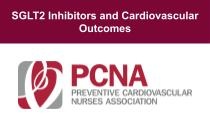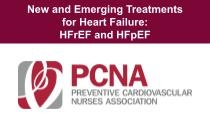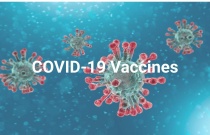Le priapisme
Pr Braiek Salem, M.D.
1.00 Hours
"Le priapisme" - dans le cadre du cours du Collège d'Urologie sur les urgences urologiques - 7 & 8 mai 2022 -
Les bourses aiguës
Dr Mehdi Raboudi, M.D.
1.00 Hours
Cours sur les bourses aiguës - Thème : urgences urologiques - cours du Collège d'Urologie - 7 et 8 mai 2022
Nursing Management in Substance Misuse
Mr. Emmanuel Ntakiyisumba
This course aims to introduce the Nursing management of substance abuse disorders. Different tyes/categories of substances have been described, and substance abuse disorders including addiction and withdraw have been also explained in this course as well as Nursing management for these disorders.
Role of a Nurse in Outbreak Management
Mr. BISANUKURI Evergiste
The course provides an introduction to infectious disease outbreaks. The learners will understand about outbreak detection, investigation , response activities and methodologies to be used during outbreak investigation as well as the role of a Nurse in all steps of outbreak management.
Pain Management
DUSHIMIMIMANA SANDRINE, and Mr. KARERA Eric
Pain is one of the most common reasons why patients seek medical treatment. Pain is an unpleasant sensory and emotional experience associated with actual or potential tissue damage. Pain is not just a physical sensation, but it is also influenced by attitudes, beliefs, personality and social factors, and it can affect emotio....
Nursing Management of Patient with Hypertension
NSENGIYUMVA Richard and Mr. KARERA Eric
The aim of this course is to equip knowledge a nurse regarding assessment and management of hypertension.
Mobile MDI: Data and Information Management Module
Dr Tonderayi J. Madziva
Data is raw, unorganized facts that need to be processed. Data can be something simple and seemingly random and useless until it is organized. Information is usually defined as: 1. “Organized data” (Saint-Onge, 2002); 2. “Data endowed with relevance and purpose” (Drucker, 2001); 3. “Interpreted data” (Probst et alii, 2002).....
Mobile MDI: Social Marketing Module
Dr Mlenga Jere
SM is the design, implementation, and control of programs calculated to influence the acceptability of social ideas and involving considerations of product planning, pricing, communication, distribution and marketing research.
Ethics and Governance (ISM)
M. Oumar SY
Thinking about the world of work has long been dominated by the idea of efficiency, performance and compliance with laws, rules, and procedures, but it is becoming increasingly frequent to focus also and above all on the use of ethics in corporate governance as well as in public sector management. It will be important to take....
M&E for the Frontline Health Manager
Eric Tama
The aim of this course is to introduce you to the concepts and practices of M&E. The course will cover the basics of M&E; the key steps in building an M&E system; the key steps in operationalizing an M&E plan; and finally data reporting, data use and sustaining M&E systems. Consequently, you will get to appreciate the to....
Health Economics for Frontline Healthcare Workers
Eric Tama
In a free market some form of government intervention is needed to ensure equality and equity. In this module we will discuss Health Economics for Frontline Healthcare Workers
Secondary Prevention in Acute Coronary Syndrome: What Nurses Need to Know
Eileen M. Handberg
Join Dr. Eileen Handberg as she reviews secondary prevention guidelines for patients with acute coronary syndrome, describes non-statin therapies that may provide additional lipid lowering and risk reduction in high-risk patients hospitalized with acute coronary events, and discusses a team-based approach to managing the transit....
Pediatric Prevention Guidelines
Laura Hayman
Dr. Laura Hayman reviews the evidence for starting young when it comes to preventing CVD and highlights strategies and settings for primordial and primary prevention.
SGLT2 Inhibitors and Cardiovascular Outcomes
Darren McGuire, and Cindy Lamendola
This SGLT2 inhibitor continuing education course provides timely insights into implementing evidence-based treatment strategies related to atherosclerotic cardiovascular disease, heart failure, and SGLT2 inhibitors. Darren McGuire, MD, MHSc summarizes the glycemic and non-glycemic effects of SGLT2 Inhibitors, and their safety pr....
Making the Link Between Diabetes and Cardiovascular Disease
Marilyn Tan and Cindy Lamendola
With this link between diabetes and cardiovascular disease course, you will learn practical approaches for cardiovascular clinicians to incorporate the treatment of diabetic patients in cardiology practices. Stanford endocrinologist, Dr. Marilyn Tan reviews current clinical practice guidelines and prescribing recommendations for....
Lipid Management in 2020: The Role of Non-Statin Therapies
Susan Halli-Demeter
Susan Halli-Demeter, RN, DNP, CLS reviews the benefits of non-statin, LDL-C-lowering therapies for patients with very high-risk atherosclerotic cardiovascular disease (ASCVD) and severe hypercholesterolemia.
New and Emerging Treatments for Heart Failure: HFrEF and HFpEF
Colleen McIlvennan
Colleen McIlvennan, PhD, DNP, ANP, FAHA, FHFSA, provides a compelling presentation focusing on the new and emerging treatment for persons with HFrEF (heart failure with reduced ejection fraction) and HFpEF (heart failure with preserved ejection fraction). This presentation includes an overview of the current guidelines for manag....
Aortic Stenosis: Treatments
Janet Fredal Wyman
The fourth of four peer-to-peer videos that aim to increase awareness of valvular heart disease and the important role that nurses play in early identification, access to prompt treatment, and prevention of deleterious outcomes. Dr. Janet Wyman, Nurse Practitioner, and Administrative Director, Structural Heart Clinical Services,....
Aortic Stenosis: Team-Based Care and Shared Decision Making
Patricia Keegan
Dr. Patricia Keegan, Nurse Practitioner and Director of the Structural Heart Program at Emory Healthcare in Atlanta, Georgia, reviews the importance of early diagnosis and prompt referral to a valve center to improved health outcomes for those with aortic valve disease. Dr. Keegan describes the decision making that goes into tr....
Inflammation and Cardiovascular Disease: Understanding the Relationship
Donna Arnett
Donna Arnett, PhD, MSPH, discusses inflammation and chronic inflammatory disease in the context of atherosclerosis. She describes inflammation as a process that links lipids to ASCVD and covers the interconnections between diet, genetics, and physical activity.
Améliorer la prise en charge de la douleur en pédiatrie
Rebecca C. Threatt
Ce cours est conçu pour aider les infirmières de CURE à utiliser une pratique fondée sur des données probantes et de meilleurs outils d'évaluation permettant de gérer la douleur pédiatrique et d’utiliser les meilleurs médicaments et les pratiques alternatives pour soulager la douleur chez les patients pédiatriques.
COVID-19 Vaccine: Debunking Myths
Prof Wesley Too
This course is about debunking myths about the covid-19 vaccine
Sexual Exposure to HIV
Hayley Wood and Andrew Tomkins
This session will cover the risk of acquiring HIV infection from different types of sexual exposure, factors that can affect risk of transmission and methods to prevent HIV transmission.
HIV and TB for Health Care Professionals in the Era of COVID-19
Foundation for Professional Development
COVID-19 has changed the profile and importance of many diseases in the world. WHO declared TB a worldwide emergency already in 1993 and together with HIV has ranked as major cause of morbidity and mortality in Africa for the last decade and more. Yet, with the arrival o COVID-19, the focus has rapidly shifted. Attention and res....
























